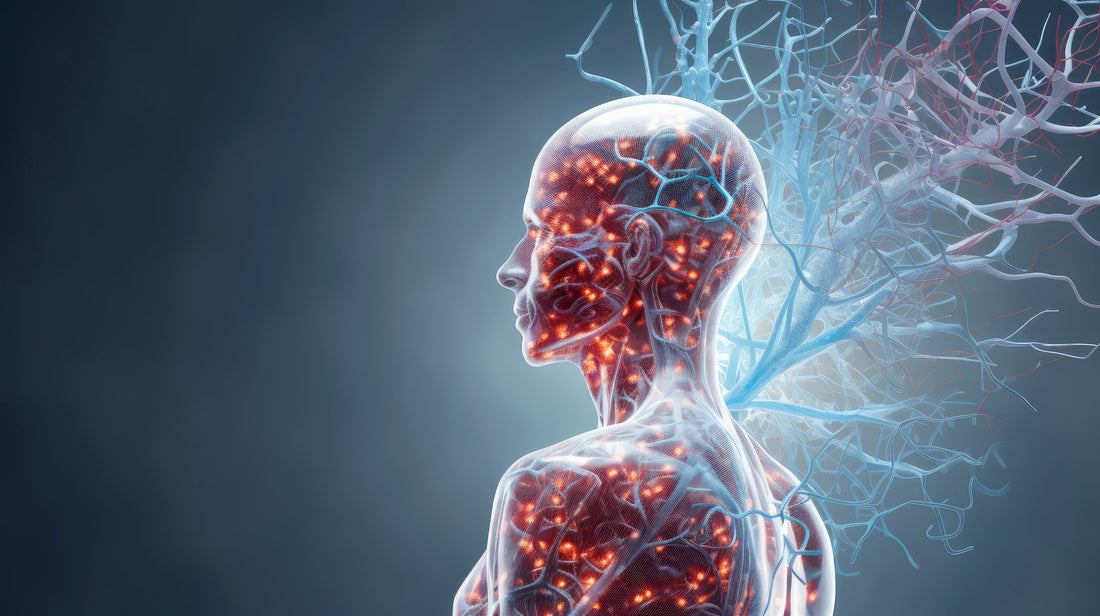
The endocannabinoid system: what is it and how does it work?
Share
The endocannabinoid system (ECS) is a key, yet often overlooked, biological mechanism that plays an essential role in maintaining internal balance in the human body. It is involved in regulating numerous vital processes, including sleep, appetite, pain, immune response, mood, and even metabolism.
Discovered in the 1990s, the endocannabinoid system has quickly become a hot topic in the scientific community. With the growing interest in cannabinoids, especially the non-psychoactive compound cannabidiol (CBD) , research into the interactions between these substances and the ECS continues to grow. Understanding this system is essential for anyone who wants to learn more about the effects of CBD products and their potential health benefits.
How was the endocannabinoid system discovered?
The discovery of ECS is the result of years of scientific research related to the psychoactive substance tetrahydrocannabinol (THC) – the main active ingredient in cannabis. In 1964, Dr. Raphael Mechoulam and his team were able to isolate THC, which marked the beginning of an in-depth study of how this compound affects the human body.
In the 1980s, scientists discovered specific cannabinoid receptors in the brain—the CB1 receptors, which respond to THC. Later, the CB2 receptor , which is located mainly in immune system cells, was also identified.
The next logical step in scientific research was to discover endogenous (body-produced) substances that interact with these receptors. In 1992, anandamide , the first known endocannabinoid, was discovered, followed shortly after by 2-arachidonoylglycerol (2-AG) .
These endocannabinoids have a structure similar to the cannabinoids in the cannabis plant and bind to CB1 and CB2 receptors to regulate various physiological processes. This gives us a complete picture of the endocannabinoid system – a complex network of receptors, enzymes and signaling molecules that maintains homeostasis (internal balance) in the body.
How does CBD affect the endocannabinoid system?
While THC directly binds to CB1 receptors and causes psychoactive effects, CBD interacts with the ECS in a different and more subtle way , without causing a feeling of intoxication.
CBD has an indirect effect by slowing the breakdown of endocannabinoids , especially anandamide. This leads to increased levels of anandamide in the brain , which can have a number of positive effects:
-
Anti-inflammatory and analgesic effect
CBD reduces the production of pro-inflammatory cytokines and can modulate the way the body perceives pain, making it suitable for people with chronic inflammation, muscle soreness, or general physical fatigue. -
Support for neurological conditions
Research shows that CBD can be effective as part of the treatment of severe epilepsy conditions like Lennox-Gastaut syndrome and Dravet syndrome . In some countries, CBD-based medications are even approved for such diagnoses. -
Sleep and anxiety regulation
CBD can positively impact sleep by reducing anxiety, stress, and mental tension—common causes of insomnia—making it a popular choice for people looking for a natural way to improve their rest. -
Support for the immune system and metabolism
By interacting with CB2 receptors, CBD helps regulate the immune response and may have an impact on metabolic processes related to appetite, glucose levels, and body weight.
Why is it important to know the endocannabinoid system?
The ECS is so widespread in the body that understanding it is key for anyone using or considering using CBD products – oils, drops, vapes, teas, cosmetics, etc. It acts as a "fine-tuning" system that balances various processes and returns the body to an optimal state.
CBD products are not drugs and do not replace medical treatment , but through their interaction with the ECS, they can support the body in cases of tension, pain, stress, sleep disorders, etc.
Important clarification
Despite the many scientific findings and positive consumer reviews, it is important to emphasize that CBD is not a medicine . It is not intended to diagnose, treat, or cure any disease. For health concerns or prolonged discomfort, always consult a medical professional.











